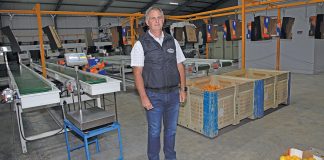
Photo: Bill Kerr
In fact, land preparation can hide a multitude of sins, such as making shallow erosion gullies disappear and pulverising clods formed from working wet soil. Everything might look ‘back to normal’ again, but the damage has been done.
Farmland is loosely valued according to whether it is irrigated and/or is suitable for cultivation. Unfortunately, soil that has been well looked after through conservation practices is not valued substantially more than unimproved soil. But it should be! Well-nurtured soil produces better crops at a lower cost.
After six years of formal agricultural training and a lifetime in agriculture, it is only in the past 18 years that I have come to appreciate the real value of soil improvement. But it’s hard to convey to farmers the real benefits and economics of caring for and improving the soil.
Farmers are constantly bombarded with products that sound good, but prove to be rubbish; this makes them rather sceptical of change.
It is also much easier to sell a product than it is to convey a concept! Selling a product pays for the salesperson’s visit to the farm, whereas simply sharing information on a farm visit does not! And anyway, the information has to be tested by sceptical farmers.
The No-Till Club does splendid work in this regard by having successful farmers and leading agronomists carry out presentations and sharing their testimonies.
But it’s nonetheless very difficult to break away from practices that you (and your neighbours) have employed for decades, especially if these have enabled you to make a living from your farm.
Try it in stages
My advice to sceptics is to listen to advice on conservation agriculture and make a gradual change to a small area. In any case, the recipe for one farm may not work for your farm. There are many ways of going about conservation farming.
The basic principles can be adapted to suit your specific needs.
And just because you have been practising certain methods and remain successful, it does not mean that a change will not be beneficial.
I came across a farmer who for many years had scraped the soil between rows of carrots and beetroot. I said that what he was doing was wasting labour for no benefit.
He wanted to know why, in that case, the crop always ‘sprang up’ shortly after the soil had been scraped.
I replied that the scraping was done at the stage that the crop would have shown rapid growth anyway!
He left a section untouched and saw no difference, and now saves on labour cost.










